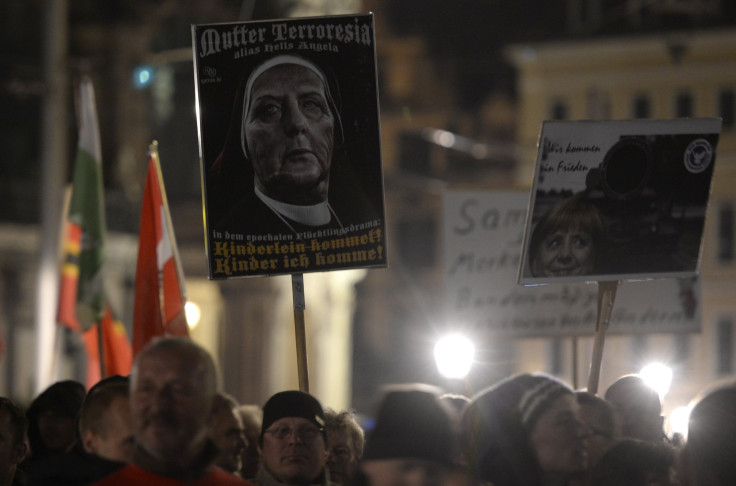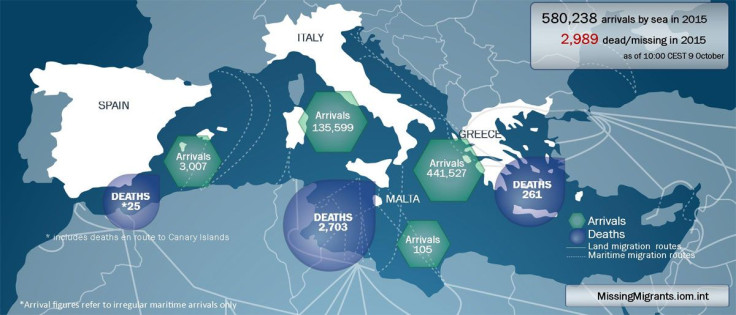German Anti-Islam Group Pegida's Rally Draws Thousands In Dresden

As many as 9,000 people are estimated to have attended a rally held by anti-Islam group Pegida in the German city of Dresden late Monday, according to local media reports. The group -- whose name is a German acronym for “Patriotic Europeans against the Islamization of the West” -- also held rallies in the Netherlands over the weekend, where its leaders urged members to “stand together to save our culture.”
In Dresden, Pegida leaders hit out at German Chancellor Angela Merkel, calling her “the most dangerous women in Europe” for her government’s defense of an open-door policy for refugees.
Speakers at the rally also accused the “conditioned socialist” Merkel of turning Germany into a “jungle camp.”

Pegida, a Dresden-based group, has organized several rallies and demonstrations across Europe since last October. The group, whose German rallies have, in the past, witnessed the participation of thousands of people, has called for stricter border controls to prevent the perceived Islamization of European countries, and prevent the influx of refugees from the Middle East.
However, the group’s demonstrations outside Germany have not witnessed significant participation. In March, the group was forced to cancel its rallies in Montreal, Canada, after only 15 of its supporters showed up. The group suffered setbacks earlier this year after Facebook selfies emerged of founder Lutz Bachmann sporting the moustache and side-parted hair made infamous by Adolf Hitler.
Earlier this year, Merkel denounced Pegida’s activities and accused it of fomenting “prejudice, coldness and hatred.”
The latest rally comes as Europe grapples with its biggest refugee crisis since World War II. The International Organization for Migration estimates that more than 580,000 refugees have arrived by sea so far this year, but the exact numbers remain unclear.

Germany continues to be the most popular destination for these refugees. The country received almost 222,000 asylum applications by the end of August and is expected to admit up to a million refugees -- mostly from impoverished and strife-torn nations in the Middle East and sub-Saharan Africa -- by the end of the year.
“For me it is part of the basic humanity of our country that one deals with a refugee in a friendly way, as with every other human being,” Merkel reportedly said Monday, urging other European nations to do their part in “distributing the refugees fairly between the member states.”
However, several other countries in the European Union have not been entirely open to the idea of allowing refugees within their borders -- casting doubts over the viability of the EU’s Schengen passport-free travel policy. Hungarian Prime Minister Viktor Orban, for instance, said last month that Europe’s response to the crisis was “madness” and could have “explosive consequences” for the region.
“Those arriving have been raised in another religion, and represent a radically different culture. Most of them are not Christians, but Muslims,” Orban reportedly said. “This is an important question, because Europe and European identity is rooted in Christianity.”
© Copyright IBTimes 2025. All rights reserved.






















